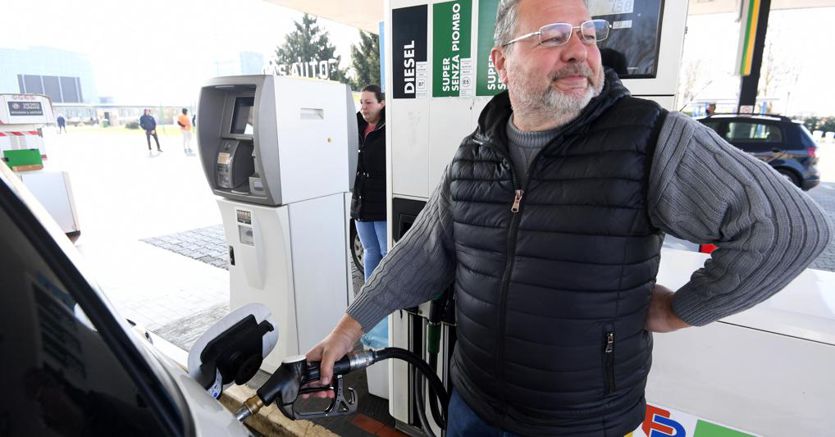It is true, we consumers of 2022 still pay a pataphysical tax for the Abyssinian war, but first of all comes the rigor of the numerical data. The weekly survey by the Ministry of Transition says that on Monday 7 March gasoline cost an average of € 1.95 per liter, of which € 1.08 was a tax penalty and an industrial price of 87 cents. Diesel fuel 1.82 per liter of which 94 cents of tax disincentive and 88 cents of industrial price. Yes, it is higher taxes that make gasoline more expensive than diesel, which actually has a higher market price than green.
And after taxes, the cost of Italian fuels is lower than the European average. In percentage terms, the tax penalty on fuel is 55% of the final cost of gasoline and 51% of the total price of diesel. For those who love detail, at the survey on gasoline on Monday 7 March, the excise duty was 72.8 cents and VAT 35.2 cents. For diesel, 61.7 of excise duty and 32.9 of VAT at 22%.
The Abyssinian War
As in a diaphanous, the 1.08 euro tax burden on petrol is made up of dozens of increases with which, from the first cars that snorted alongside the roadside houses up to the modern Euro6 cars, the Italian State has financed every company and every moment of difficulty. It was 1935 when (forgive the hail of capital letters) His Excellency the Head of Government Cavalier Benito Mussolini decided to use excise duties on petrol to give money to the Abyssinian war and create his ephemeral empire. He added a very high excise duty of 1 lira and 90 cents, equal to a sudden increase of 2.19 euros today. But there were very few cars, they had spoked wheels, children and dogs chased cars on the road and those who could afford the extreme luxury of a car could also afford such a burning increase.
From one off to one always
In the country with the most imaginative and hungry taxman in the world, fuel taxes have been the most recurring tool for dealing with emergency situations. The tax increase decrees have never clearly expressed the reasons and the duration of the new excise duties so, once the emergency is over, the Governments with elegant distraction have always forgotten to remove the purpose tax. In words they were “one off”, in fact they remained “one always”. The terrible war in Bosnia (23.11 lire per liter) was the only transparent case of purposes with an expiration date (until 31 December 1996), but a few days before the expiration date, the usual elegant distraction made the rise in prices stable forever. tax.
Suez, the Belice and the others
In addition to the Abyssinian war, excise duties were increased to pay for the damages and reconstructions of the great tragedies of Vaiont (10 lire, October ’63) and Irpinia (’80 with a 75 lire increase) and humanitarian interventions in Lebanon (205 lire in 1983, divided into two convenient installments). And then another 14 lire to face the international crisis of the Suez Canal of 1956; another 9.6 lire (excluding Ige) for the damage of the flood of Venice and Florence of 4 November 1966; another 10.07 lire for the Belice earthquake of ’68; another 99.8 lire for the Friuli earthquake in May ’76. And with each refueling, together with the car, the ghosts of the timeless march of the Royal Army towards Addis Ababa walk.
–


